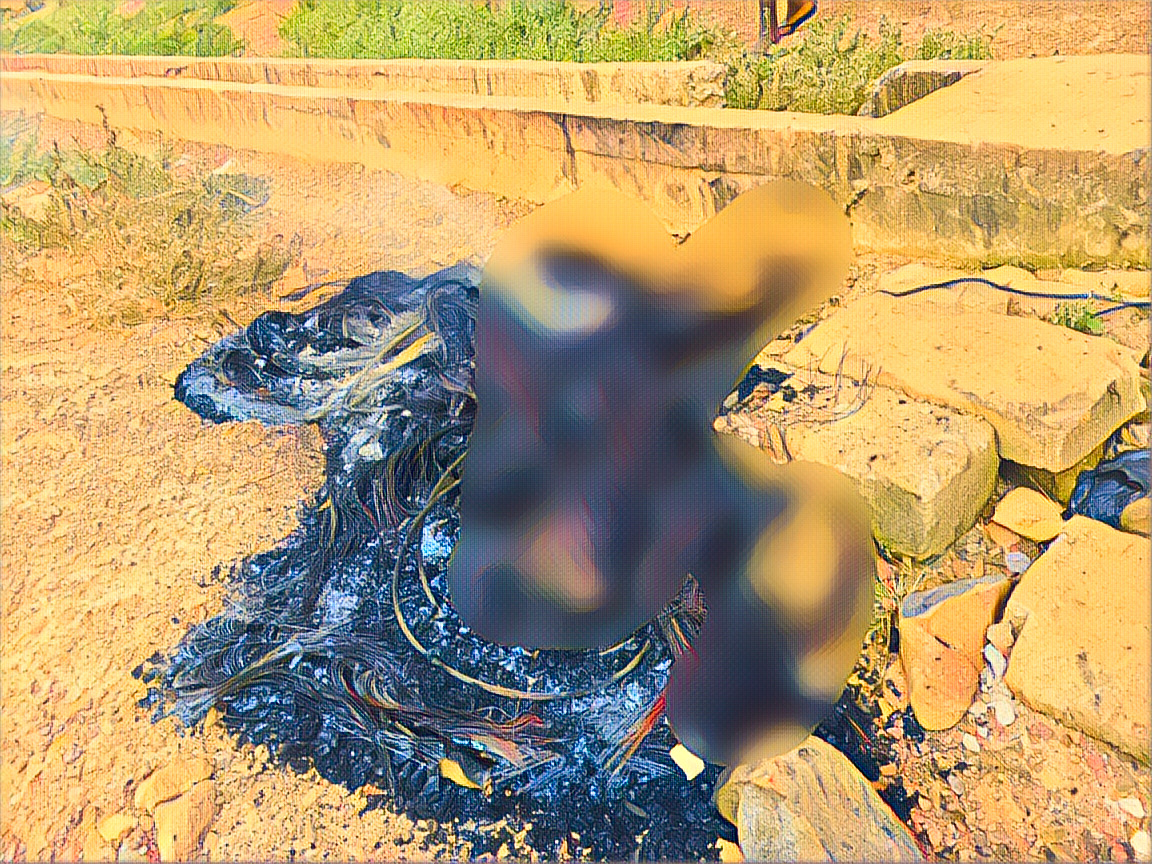In a shocking incident that has sent waves of horror across Ghana, six individuals have been arrested for the brutal murder of a 60-year-old man in Ahanta. The suspects allegedly burned the victim to death, an act that has drawn widespread condemnation and highlighted issues of vigilantism and mob justice in the country.
The Ghana Police Service confirmed the arrests following a swift investigation into the gruesome killing, which took place in a remote village in the Ahanta West District of the Western Region. The victim, identified as Kwame Osei, was reportedly accused by the suspects of practicing witchcraft, leading to the heinous act.
Eyewitnesses recounted that the suspects, believed to be local residents, apprehended Osei and subjected him to severe beatings before setting him on fire. Despite pleas from some community members to spare his life, the group proceeded with their deadly intentions, leaving the elderly man to die in agony.
The police, acting on a tip-off, launched an operation to apprehend the suspects, who attempted to flee the scene. They were captured in various locations within the district and are currently in custody, facing charges of murder and conspiracy to commit murder.
Superintendent Joseph Ankomah, the district police commander, described the incident as a “barbaric act of cruelty” and assured the public that justice would be served. “Such acts of mob justice and vigilantism have no place in our society. We will ensure that those responsible are prosecuted to the fullest extent of the law,” Ankomah stated.
This tragic event has sparked a national conversation about the prevalence of mob justice in Ghana. Human rights organizations and civil society groups have long decried the tendency of some communities to take the law into their own hands, often resulting in fatal consequences. The incident in Ahanta underscores the urgent need for increased public education on the rule of law and the dangers of mob actions.
Nana Kwasi Adu, a local human rights advocate, emphasized the importance of community awareness and the role of law enforcement. “We need to educate our communities about the dangers and illegality of mob justice. People must understand that accusations, whether of witchcraft or any other crime, should be reported to the police and handled through proper legal channels,” he said.
The Ghanaian government has also expressed its dismay over the incident, with calls for stricter measures to curb vigilantism. Minister of Interior Ambrose Dery reiterated the government’s commitment to eradicating such practices. “We condemn this senseless act of violence. The government is committed to ensuring the safety and security of all citizens, and we will not tolerate any form of mob justice,” Dery affirmed.
In addition to legal actions against the perpetrators, there are growing calls for psychological support for communities affected by such traumatic events. Mental health professionals argue that witnessing or participating in such violent acts can have lasting psychological effects, particularly on children and vulnerable individuals.
As the legal process unfolds, the community of Ahanta is left to grapple with the aftermath of this horrific crime. Many residents are calling for peace and urging their neighbors to trust in the judicial system to address grievances.
This incident serves as a stark reminder of the importance of upholding the rule of law and the need for continued efforts to educate and protect citizens from the perils of mob justice. While the path to justice for Kwame Osei is just beginning, the collective hope is that such tragedies will spur lasting change in how communities address conflict and accusations.
The arrest and impending trial of the suspects are seen as critical steps in reinforcing the message that vigilante violence will not be tolerated. The ultimate goal is to ensure that no more lives are lost to such brutal and unlawful actions.
Source: ghanaweb.com




